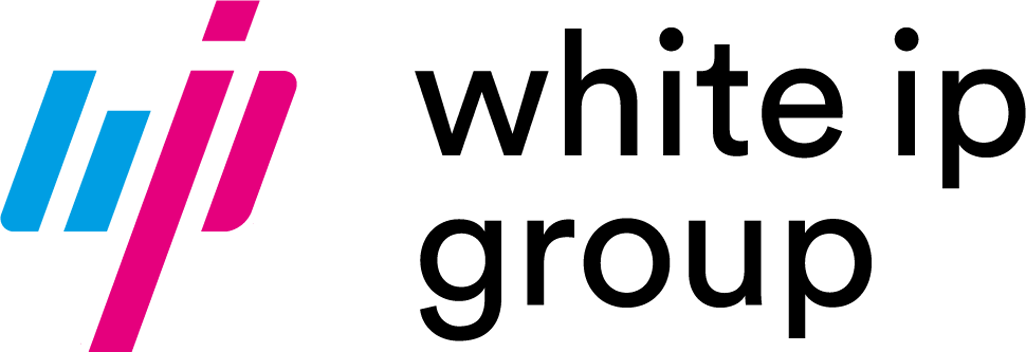Patent Application
Your idea is your success!
In order to be able to apply for a patent for your idea, your idea should not be excluded from patentability due to its lack of technical character. These include, for example, ideas that relate exclusively to scientific theories, mathematical methods, artistic works, games or business methods.
Over 250 companies already trust white ip
Your idea is your success!
00%
Personal consultation
During the initial meeting (lasting a maximum of one hour) at our premises or via video call, you will present your invention to us. During the appointment, we will advise you on patent law hurdles and the procedure of a patent application. You can also send us material, information, drawings or videos beforehand. We are bound by law to maintain confidentiality, whether or not you choose to use our services. If you wish, you can transfer all information encrypted. In addition, we advise you on funding opportunities to make the patent application process more favorable for you.
00%
Quotation preparation
Based on our initial discussion, your provided documents as well as any additional documents, we will draw up a recommendation for action and an offer tailored to your individual needs.
Our offer includes not only a detailed and transparent cost overview of the individual items, but also a clear registration strategy. The costs of a patent application or a search depend on the degree of complexity and the field in which your invention is to be classified, as well as the expected amount of work. In particular, the filing of applications for inventions that appear trivial is often accompanied by an increased effort, since they are often already part of the prior art, at least in part.
00%
Patent search (optional)
In some cases, we advise an upstream patent search, although this is of course optional for you. In doing so, we identify patents and other publications that may contain identical or comparable inventions. This minimizes the risk that we register an invention for you that already exists. This is because even after grant, your patent can be challenged by a third party with an action for revocation, for example if your competitor has found prior art that the examining division overlooked.
In addition, a comprehensive search serves to specifically improve the application documents for your planned patent application. Thus, an upstream patent search allows you to better distinguish your invention from the prior art so that you obtain a particularly strong and valid patent.
Keep in mind that your own publications also have a novelty-damaging effect on your patent application. If you inform a third party about your invention, you should therefore oblige that third party to maintain confidentiality by means of a non-disclosure agreement (NDA). We will also be happy to assist you in drawing up a non-disclosure agreement.
00%
Preparation of your patent application
In consultation with you, we first draft the claims that define your invention, i.e. the scope of protection. Once all the features of your invention are sufficiently presented, the elaboration of the description, drawings and embodiments follows. Usually, the first draft is followed by two more until you release the final draft for submission. Often, further questions or new features arise during drafting, which are then included in the patent application to make the scope of protection as comprehensive as possible. Of course, we support you throughout the entire process.
00%
Filing of the patent
Once you have approved the final draft of your patent application, it is formatted and submitted to the relevant office - usually the German Patent and Trade Mark Office (DPMA) or the European Patent Office (EPO). The filing date secures the seniority of your patent application. This means that any worldwide publication after this date can no longer be held against your registered invention as being detrimental to novelty.
00%
Patent grant
If all concerns of the Examining Division have been resolved, a patent is granted for your invention. The patent is valid for 20 years from the day after the application is filed. Be aware that it is a long process from the drafting of the patent specification to the granting of a German patent, taking three to seven years on average.
Patent
To be able to use your invention commercially, you have the option of applying for a patent and protecting your business model from imitation. We will be happy to support you.
What is a patent?
Alongside the trade mark, the patent is probably the best-known property right in Germany. Once a patent has been granted on an invention, the patent holder may prohibit others from commercially exploiting the invention as long as the patent is in force. This is therefore a prohibition right with which you can secure the exclusive use of your invention. However, you can allow a third party to use your invention, e.g. by licensing it. A patent is also a property right that is limited in time and space. This means that the patent can only be in force in the countries in which it has been granted. As a rule, the term of protection is 20 years, calculated from the day after filing the application. (A supplementary protection certificate for medicinal or plant protection products allows additional protection for another 5 years). Instead of a patent, a utility model can also be considered, but this is an unexamined property right. We will also be happy to advise you on a utility model.
Benefits of a patent
A patent has two main functions. On the one hand, the inventor is to be rewarded for contributing with his innovation to an expansion of the state of the art and thus to technical progress. On the other hand, the official publication of the invention is intended to inform the public about the invention and thus contribute to further research and development in order to expand the state of the art. Patents strengthen individuals and companies in global competition and contribute significantly to economic development. A patent can also serve as collateral in a loan as well as reduce the cost of the loan.
Requirements for granting a patent
For an invention to be patented, three basic conditions are necessary:
1. Novelty
Your invention must be new. This means, it must not have already been published in any way by the date of application. This includes prior publications of any kind, written, oral, as well as pictorial representations that reveal the principle of operation. It is irrelevant in which language the publication was made or what the medium of distribution is (internet, books, journals, etc.).
2. Inventive activity
This is usually the biggest hurdle in the patent granting process. While for the examination of novelty it is compared whether the invention has already been realized 1:1, which is usually not the case, publications in combination are also used for the assessment of inventive step.
Example: The invention is a bicycle with a bell, the purpose of the bell being to serve as a warning signal. The examiner finds two prior art documents: Document 1 describes a bicycle. Document 2 describes a bell as a warning signal generator. The test always assumes an imaginary skilled person who combines the two documents and thus arrives at the solution according to the invention of the bicycle with bell as a warning signal transmitter. Thus, the invention would not be based on an inventive step and thus not patentable. However, if the invention differs sufficiently from the prior art and it can be assumed that a person skilled in the art would not arrive at the same solution, the hurdle of inventive step is taken.
3. Commercial applicability
According to the Patent Act (§5), an invention is "considered to have industrial application if its subject matter can be made or used in any industrial field, including agriculture." This is the easiest hurdle to clear.
Furthermore, the invention must be practicable with the current means of the prior art and must have a technical character/technicity. However, since the fields of technology (mechanical engineering, chemistry, biology, etc.) are constantly changing, the Patent Act does not define what constitutes a technical invention.
We support you in fulfilling these criteria and get your invention on track to be able to successfully apply for a patent.
Patent application procedure
After the patent application is filed, the Patent Office first conducts a preliminary examination, during which your patent application is checked for the presence of formal obstacles. In addition, your invention will be classified in an international classification scheme (IPC). This facilitates the subsequent determination of prior art, since an examiner can thus search an invention for the relevant classes. Within 7 years (counted from the filing date) the request for examination can be filed before the DPMA. Provided that the formal criteria are met, your patent application will be published after 18 months with a publication notice, regardless of whether or not a request for examination has been filed. Within this period, you can withdraw your patent application, which is a good idea if, for example, you find that your invention still needs improvement. However, an extension of your invention cannot be accorded the same filing date of the original application. Instead, the extension receives a new filing date. After the examination procedure and the elimination of any deficiencies within the framework of an examination notice, the granting of a patent follows.
The patent system is a very extensive and complex field of law. To apply for a patent in Germany, you must consult a patent attorney if you are not residing in Germany. Unfortunately, due to the high bureaucratic standards, a high rate of deficiencies is often to be expected in an independent patent application without professional support from a competent patent attorney. Merely an inaccurate description or the choice of an incorrect or unclear term in the wording of a patent claim can lead to enormous difficulties during examination and review, which in turn end in infringement proceedings and negative examination notices. This delays the entire procedure or even leads to a rejection of the patent application.
white ip | Patent & Legal sees itself as your competent partner to master the hurdles of patent law with you!
FAQ - Frequently asked questions
What can be patented?
Your invention must be directed to a product or process.
If you apply for a patent for your invention, you will receive the best-known industrial property right. Your invention must be directed to a product or process. As soon as you successfully apply for a patent, you receive the sole right to use and commercially exploit your invention. In particular, commercial exploitation can be done by licensing to third parties. Note when you apply for a patent that this patent protection right is always granted for a certain time, countries and territories.
What subject matter is excluded from patentability?
Your idea should not be excluded from patentability due to lack of technical character.
In order to be able to apply for a patent for your idea, your idea should not be excluded from patentability due to its lack of technical character. These include, for example, ideas that relate exclusively to scientific theories, mathematical methods, artistic works, games or business methods.
In addition, there are legal restrictions with regard to the patentability of ideas that have a technical character, but are immoral or violate public order. In addition, you cannot apply for patents for medical procedures in general and for certain genetic engineering procedures in the field of biotechnology (e.g. procedures for cloning human beings, procedures for changing the genetic identity or torture breeding of animals).
We would be happy to work out a strategy with you on how you can successfully protect your idea, even though an exclusion or an exception from patentability might appear at first glance.
What documents do I need for a patent application?
Your invention must be clearly and completely disclosed in the application documents.
As soon as you apply for your patent, an examination by the patent office - in the case of Germany the German Patent and Trademark Office (DPMA) - is necessary. In this regard, your invention must be clearly and completely disclosed in the application documents so that a person skilled in the art can readily carry it out using prior art means.
The following documents are required for this examination: the application for a patent, a technical description of your invention, the patent claims which constitute the scope of protection of your patent, if necessary drawings of your invention, a summary of your business idea and an inventor's designation of your idea. These documents make up the entirety of your patent specification. It is an accurate description of your innovation and an unambiguous explanation of your patent claims. It is not unusual for the application documents to comprise more than 40 pages, and the text must meet the requirements of patent law, on the one hand to avoid the occurrence of misunderstandings and, on the other hand, to achieve the greatest possible scope of protection. You realize when you file your invention as a patent, a great deal of effort is required. For this purpose, commission the competent patent attorneys of white ip. We take a large part of the work off your hands and are very familiar with the challenges due to a large number of successfully completed patent applications.
How long is patent protection valid?
When you apply for a patent, the protection is valid for a period of up to 20 years.
When you apply for a patent, the protection is valid for a period of up to 20 years. According to the strategy of your company, the period must be chosen appropriately. For a short-lived product that is updated after a few years, protection over two decades is not necessary. This can save costs, because maintaining your patent protection involves increasing costs. As soon as you want to apply for your patent, we are available to advise you on a suitable period of time.
What is the patent application process?
We recommend a patent search as part of a patent application.
We recommend a patent search as part of a patent search application. This ensures the above-mentioned novelty of the invention and prevents infringement of existing property rights. After your patent has been successfully filed, the so-called first application, improvements, clarifications, extensions or limitations can be added. These changes must relate to items that are already included in the initial application. A fundamental change of course is not possible after the patent application, but a course correction is.
Where is a patent filed?
The German Patent and Trade Mark Office (DPMA) is responsible for granting patents in Germany.
For the strategic orientation of your company, the country in which you want to market or manufacture your invention is important for the patent application. The German Patent and Trade Mark Office (DPMA) is responsible for granting patents in Germany. There, the above-mentioned documents are submitted in written form. In the first year after the first application, the patent can be protected in other countries, i.e. internationally.
How do I apply for an international patent?
If you want to apply for your patent in other countries, this task also starts at the DPMA.
If you want to apply for your patent in other countries, this task also starts at the DPMA. To cover as many countries as possible, take advantage of the Patent Cooperation Treaty (PCT). This means that you can now apply for your patent in all 153 member states. But be careful, a so-called world patent does not exist. If you only want to file your patent in the European Union, you can obtain a European patent through the European Patent Office (EPO).
How will my patent right be enforced?
The German Patent and Trade Mark Office (DPMA) is responsible for granting patents in Germany.
In the event of a patent infringement, we will gladly represent you and enforce your property rights in a professional and qualified manner. Please also visit our page on patent infringement. You have not experienced any patent infringement, but on the contrary, you want to share your invention with others? Our partner, white ip | Business Solutions GmbH, provides you with business advice on all aspects of exploiting your intellectual property, while our legal team assists with drafting licence and cooporation agreements.
How much does a patent application cost?
The costs for a patent application are strongly dependent on the degree of complexity and the expected effort.
The costs for a patent application are strongly dependent on the degree of complexity and the expected effort. The investment for a patent application by a patent attorney starts at EUR 3500. In addition, there are the fees from the side of the office where the patent application is filed. The following fees are payable to the DPMA for a German patent.
|
Application procedure (electronic): |
40 EUR (from the 11th claim, the fee increases by 20 EUR per claim. |
|
Registration procedure (paper form): |
60 EUR (from the 11th claim the fee increases by 30 EUR per claim. |
|
Search Request Fee: |
300 EUR |
|
Examination fee according to search request submitted: |
350 EUR |
|
Annual fee from the 3rd - 20th year (increasing): |
70 - 1940 EUR |
What subsidies are available?
Costs for the search and the patent application are funded up to 50%.
For example, a WIPANO grant may be eligible to promote inventive activity. The Federal Ministry for Economic Affairs and Energy (BMWi) provides 50% of the costs for the search and the patent application.
What service does white ip offer?
Due to the high bureaucratic standards, a patent application without professional support is unfortunately often likely to have a high defect rate
Furthermore, the invention must comply with the numerous formal requirements of patent law in order to be able to apply for a patent, i.e. to secure the patent application.
Unfortunately, due to the high bureaucratic standards, a high rate of deficiencies is often to be expected in an independent patent application without professional support from a competent patent attorney. Merely an inaccurate description or the choice of an incorrect or unclear term in the wording of a patent claim can lead to enormous difficulties during examination and review, which in turn end in infringement proceedings and negative examination notices. The possibility of making a serious mistake at this decisive step alone is too high to justify the risk that the entire procedure will be delayed or that the patent application will even be rejected.
As patent attorneys, we can assist you with a patent application, patent search and patent examination workflow plan tailored to your workflow and project, not only to provide you with necessary background information in a cost-effective manner, but also to remove obstacles that interfere with your workflow. We also review with you the compliance with the patent requirements and support you in fine-tuning to meet the high requirements of the DPMA or EPO and to be prepared in advance for the grant procedures before other national patent offices.
white ip | Patent & Legal sees itself as your specialized attorney for patent law in the national as well as international area and furthermore serves clients as patent attorney in Munich, Dresden, Leipzig and Chemnitz.
Speak to our experts
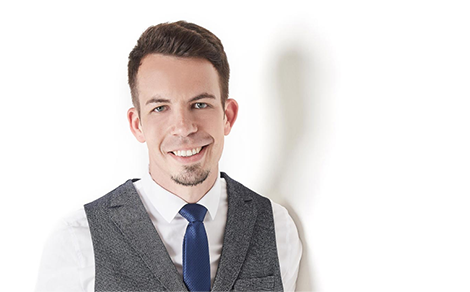
Dr. Leopold Gruner
white ip | Patent & Legal
Königstraße 7 | 01097 Dresden
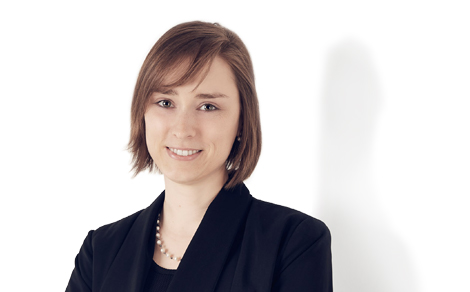
Dipl.-Ing. Sophia Falk
white ip | Patent & Legal
Königstraße 7 | 01097 Dresden
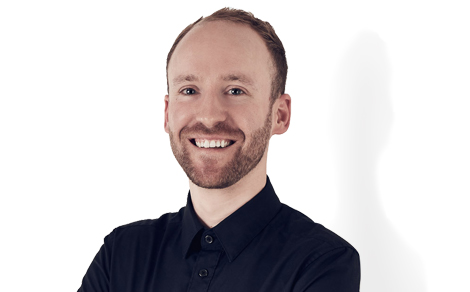
Dr. Michael Geiger
white ip | Patent & Legal
Königstraße 7 | 01097 Dresden
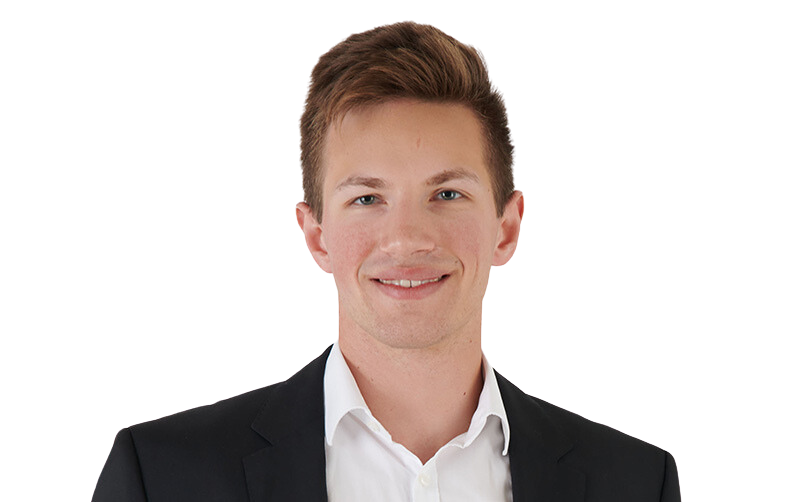
Dr. Tristan Schuh
white ip | Patent & Legal
Königstraße 7 | 01097 Dresden
